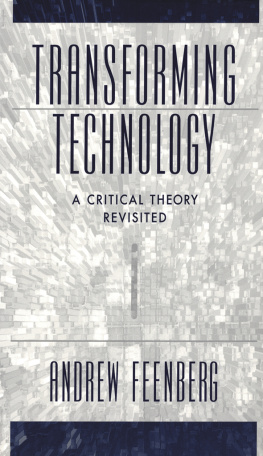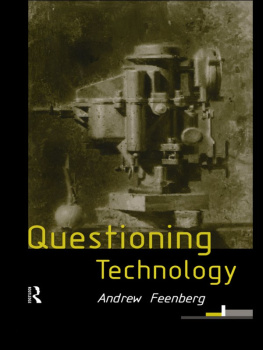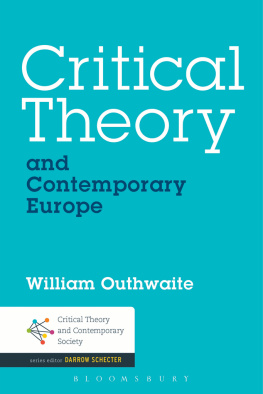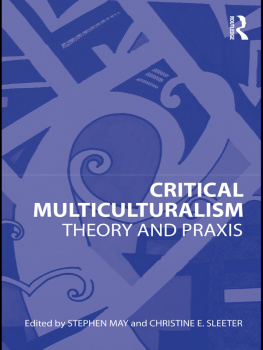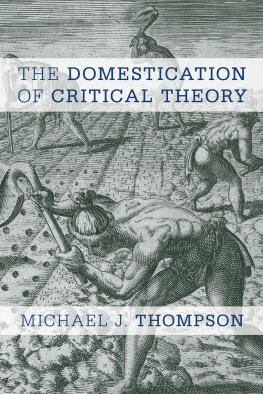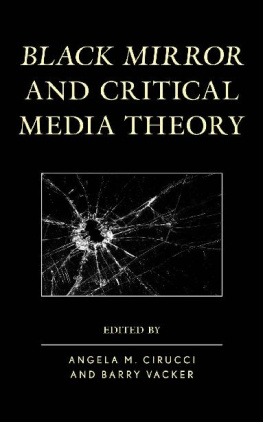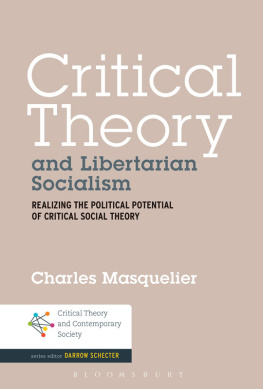Feenberg - Transforming technology: a critical theory revisited
Here you can read online Feenberg - Transforming technology: a critical theory revisited full text of the book (entire story) in english for free. Download pdf and epub, get meaning, cover and reviews about this ebook. City: USA;New York;NY, year: 2010;2002, publisher: Oxford University Press, genre: Politics. Description of the work, (preface) as well as reviews are available. Best literature library LitArk.com created for fans of good reading and offers a wide selection of genres:
Romance novel
Science fiction
Adventure
Detective
Science
History
Home and family
Prose
Art
Politics
Computer
Non-fiction
Religion
Business
Children
Humor
Choose a favorite category and find really read worthwhile books. Enjoy immersion in the world of imagination, feel the emotions of the characters or learn something new for yourself, make an fascinating discovery.
Transforming technology: a critical theory revisited: summary, description and annotation
We offer to read an annotation, description, summary or preface (depends on what the author of the book "Transforming technology: a critical theory revisited" wrote himself). If you haven't found the necessary information about the book — write in the comments, we will try to find it.
Transforming technology: a critical theory revisited — read online for free the complete book (whole text) full work
Below is the text of the book, divided by pages. System saving the place of the last page read, allows you to conveniently read the book "Transforming technology: a critical theory revisited" online for free, without having to search again every time where you left off. Put a bookmark, and you can go to the page where you finished reading at any time.
Font size:
Interval:
Bookmark:

TRANSFORMING TECHNOLOGY

A Critical Theory Revisited
ANDREW FEENBERG

2002

Oxford New York
Athens Auckland Bangkok Bogot Buenos Aires Cape Town
Chennai Dar es Salaam Delhi Florence Hong Kong Istanbul Karachi
Kolkata Kuala Lumpur Madrid Melbourne Mexico City Mumbai Nairobi
Paris So Paulo Shanghai Singapore Taipei Tokyo Toronto Warsaw
and associated companies in
Berlin Ibadan
Copyright 2002 by Oxford University Press
Published by Oxford University Press, Inc.
198 Madison Avenue, New York, New York 10016
Oxford is a registered trademark of Oxford University Press
All rights reserved. No part of this publication may be reproduced, stored in a retrieval system, or transmitted, in any form or by any means, electronic, mechanical, photocopying, recording, or otherwise, without the prior permission of Oxford University Press.
This volume is a revised edition of Critical Theory of Technology,
published 1991 by Oxford University Press.
Library of Congress Cataloging-in-Publication Data
Feenberg, Andrew
Transforming technology : a critical theory revisited / Andrew Feenberg.2nd ed.
p. cm.
Rev. ed. of: Critical theory of technology, 1991.
Includes bibliographical references and index.
ISBN 0-19-514615-8 (pbk.)
1. TechnologyPhilosophy.
2. TechnologySocial aspects.
3. Critical theory.
I. Feenberg, Andrew. Critical theory of technology.
II. Title.
T14 .F43 2001
601dc21 2001021399
Must human beings submit to the harsh logic of machinery, or can technology be fundamentally redesigned to better serve its creators? This is the ultimate question on which the future of industrial civilization depends. It is not primarily a technical question but concerns a fundamental issue in social philosophy, the neutrality of technology and the related theory of technological determinism. If technology is neutral, then its immense and often disturbing social and environmental impacts are accidental side effects of progress. Much current debate polarizes around the question of whether these side effects outweigh the benefits. The advocates of further progress claim reason as their ally, while the adversaries defend humanity against machines and mechanistic social organizations. The stage is set for a struggle for and against technology.
This book rejects this dilemma and argues that the real issue is not technology or progress per se but the variety of possible technologies and paths of progress among which we must choose. Determinists claim that there are no such alternatives, that technological advance always and everywhere leads to the same result. This view is increasingly contested by students of technology. But if alternatives do exist, the choice between them will have political implications.
Modern technology as we know it is no more neutral than medieval cathedrals or the Great Wall of China; it embodies the values of a particular industrial civilization and especially those of elites that rest their claims to hegemony on technical mastery. We must articulate and judge these values in a cultural critique of technology. By so doing, we can begin to grasp the outlines of another possible industrial civilization based on other values. This project requires a different sort of thinking from the dominant technological rationality, a critical rationality capable of reflecting on the larger context of technology.
These remarks, adapted from the preface to the previous edition, Critical Theory of Technology, were written ten years ago. It was easier then than now to make a case for radical change. The defeat of communism followed by ten years of economic growth has discredited social criticism. The power of positive thinking has never been more in evidence. But despite the remarkable achievements of these last ten years, it is reasonable to entertain doubts about the ability of this society to realize our ideals. Surely it is not necessary to list the many discouraging events and trends that justify these doubts. To give an example, a society that imprisons nearly 1 percent of its population is deeply flawed. And it is still the case that most work is unfulfilling, if not actually painful and dangerous. Nor have we found a general solution to the environmental problems caused by the technologies on which we rely for our vaunted way of life. While we are more than ever aware of both the promise and the threat of technological advance, we still lack the intellectual means and the political tools for managing progress.
Critical Theory of Technology addressed these problems by reconstructing the idea of socialism on the basis of a radical philosophy of technology. The central concern of the book was the growing conflict between democracy and capitalist and technocratic forms of organization. This conflict is still with us, registered not only in the ever narrower scope of democratic political debate but also in the social sciences, which confidently predict the coming reign of expertise. The alternative proposed here is the democratization of the many technically mediated institutions of our society. That proposal had a favorable historical context when the book was originally conceived. It was easier then to imagine a utopian political discourse tested in practice in the turmoil of disintegrating communism. Now that context has disappeared, and it is necessary to rethink the rationale for continuing to discuss utopian political ideas.
In this new context, radical politics has a somewhat different character than it did a decade ago. We have learned the negative lessons of the fall of communism but have not yet devised positive aspirations that respond to new trends toward globalization and computerization. Indeed, one is struck by the generally negative tone of contemporary social democratic and left discourse. One focuses on defending the welfare state against corporate attacks, while the other spends far more time criticizing capitalism than explaining what will replace it.
This book, with its utopian revision of the idea of socialism, still has something to offer. Consider it a provocation to rethink fundamental modern institutions in the light of the aspirations that have driven modernity for the last few centuries. Socialism is the name for one influential movement inspired by these aspirations. For long periods socialists interpreted the limitations of capitalism economically and their main concern was therefore with economic justice and growth. In the 1960s socialism was recast as a radical democratic ideology in opposition to capitalist technocracy and communist bureaucracy. Since then it has been associated with a broad conception of human liberation that includes gender and racial equality, environmental reform, and the humanization of the labor process.
These issues have not been superannuated by successful reforms. On the contrary, the struggles continue under changed conditions. But today the link forged at the origin between these struggles and the demand for a socialist economic system seems strange. It is widely assumed that capitalism is simply an efficient way of organizing production and distribution. The old socialist arguments about obstacles to human fulfillment under capitalism seem to have been refuted, at least insofar as economic growth is concerned.
Font size:
Interval:
Bookmark:
Similar books «Transforming technology: a critical theory revisited»
Look at similar books to Transforming technology: a critical theory revisited. We have selected literature similar in name and meaning in the hope of providing readers with more options to find new, interesting, not yet read works.
Discussion, reviews of the book Transforming technology: a critical theory revisited and just readers' own opinions. Leave your comments, write what you think about the work, its meaning or the main characters. Specify what exactly you liked and what you didn't like, and why you think so.

